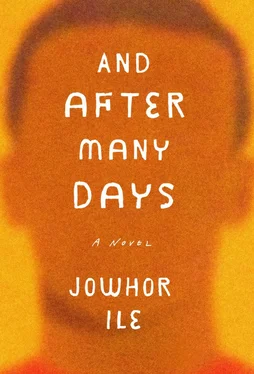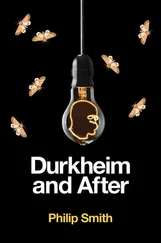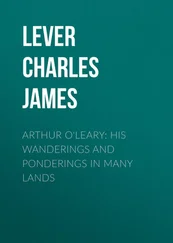Ma came inside through the back door and let the man in. He was dressed in a black suit, red shirt, and black tie. There was something captivating about the way he went about what he had to say. Every word seemed completely needful, every sentence; the way he enunciated some words, gesturing with his hands in order to illuminate them; it was as if the turning of the world depended on the things coming out of his mouth.
“I used to be a mopol,” he continued. “For six years, I did mobile police work. Between 1994 and 1995, they stationed me in Port Harcourt. I want you to take what I’m going to say calmly. God sent me here to come and make peace, because I saw something, and I think it’s only right that you should know about it.”
Ma, looking a little alarmed: “What is this about?”
The pastor hesitated, inched closer to the edge of the sofa, and linked his fingers together. “During the student riots that year, ’95 to be exact, an accident happened with a boy. He was not among those rioting, but one of my colleagues stopped to search him. It was just the work of the devil.”
“What are you saying?” Ma shot to her feet. “What are you saying?” Ismaila, who had been eavesdropping in the veranda, was now standing by the parlor door. Ma picked up the vase on the center table and hurled it at the pastor. “My son! My son!” She grabbed the man by his black tie and slapped him all over the head and shoulders. “My son! My son!” she kept shouting as Ismaila rushed to her side, trying to restrain her. “Madam, wetin him say happen?” Ismaila turned around to shout questions at the pastor, but the pastor just held his hands together in a quiet demeanor, his face placid, his eyes gentle like a dove’s.
—
The student demonstration had been peaceful all morning. It was raining, and most of them had gotten drenched in the downpour. At about midday, the sun came out and warmed up their enthusiasm. More students arrived. The mobile police, who were there to keep a close watch on the demonstration, had received strict instructions to keep things under control at all cost. Word circulated that another group of students had burned two government cars near Eastern Bypass.
Some students began to hurl stones in the direction of the police. The police shot some tear gas canisters and some bullets into the air to disperse the crowd.
That was when one of the corporals saw a boy who could have been a university student; he was carrying a knapsack. The area was deserted now, and the boy was walking briskly between the stones and the tear gas. The corporal thought he looked suspicious. His inspector had gone to ease himself in the nearby bush, so the corporal beckoned to him. “Hey-shhh, come here.” The boy acted like he didn’t see or hear the corporal. “Hey-shh, you there carrying bag, come here now!” The boy kept walking. The corporal rushed toward him in a fit of rage and whacked the boy from behind with the butt of his gun at the base of the neck, and the boy went down at once. “Bagger!” the corporal barked as the boy’s body dropped to the ground.
“Wetin be that?” the other colleagues questioned him.
“I dey ask this bastard to come, him dey ignore me.”
One of them went toward the boy lying on the ground and stooped over him. “Wetin you do am? E be like say you don wound the boy-o.”
A constable joined them to lift the boy as they put him in their van. They tapped him on the cheeks, shouted things at him in order to revive him.
The inspector came back and asked what was going on. They said the boy looked suspicious and they had tried to stop him. He wouldn’t stop, and a little accident occurred when the corporal went over to accost him. The inspector bent over the unconscious boy in the back of the van and was the first to notice the trickle of blood from his ears and nose. He turned around and spat abuses at the corporal. He threatened to ensure that the corporal got sacked if things turned for the worse. “You have injured an innocent boy! Let’s hope nothing happens to him. What do you mean, he looked suspicious?”
By the time they decided to take the injured boy to the military hospital near Rumuola, he had stopped breathing.
At about two-thirty P.M., the superintendent placed a call to his elder brother, who was the chief superintendent in charge of the Port Harcourt area. He went about everything with a calmness that suggested he might have done this many times. They searched the boy’s bag in hope of seeing anything that might incriminate him, but they only found cassette tapes, comic books, a Sony Walkman, and a video club card with a name and address on the back: Paul Utu, 11 Yakubu Gowon Avenue, Port Harcourt.
By evening, the affair was concluded, and they penned down a report: The boy had been caught looting a shop during the demonstration, an officer tried to stop him, and he assaulted the officer with a knife. A struggle ensued, during which the suspect went for the officer’s gun. Unfortunately, there was an accidental discharge and a bullet struck the suspect, killing him instantly. The two-page report was filed away.
The body of the deceased was quickly designated to the fate of armed robbers: A hole was dug at the back of the mopol station, and the body was tossed inside. It got dark quickly that day, well before six o’clock.
—
Of everything Ma had fought through in her life — the challenges of her childhood, her education, her early marriage, the birth of her children, her husband’s illness — there was no time she fought harder, more viciously, and with more focus than she did in the days after the ex — mopol pastor came to reveal what had happened to Paul.
She was on the phone early the next day, making arrangements. By eight A.M. two days later, she was waiting in the anteroom of the governor’s office, having secured an appointment with the help of former colleagues and friends. By the Thursday before Ajie arrived, she had obtained permission to dig in search of Paul’s body in the plot of land behind the fence of the police station. Colleagues and friends rallied around her, offering all kinds of assistance. Someone drove down to the family’s former dentist in Bolokiri to get Paul’s records. Someone else had a relative who worked at a new hospital in Abuja where a DNA test could be done to confirm whether the bones they had exhumed were Paul’s remains.
The taxi driver has no change, so Bibi runs inside while her boyfriend stands beside their bags. She shouts at Ajie to give her two hundred naira; she grabs the money from him and tosses a thousand-naira note at him. “Look at you, looking so proper!” she says to him with a twinkle in her eyes.
Ajie follows her outside. Bibi says, “This is my runaway brother you have heard so much about. Dotun, Ajie.”
Ajie and Dotun nod at each other and shake hands. Dotun lifts the two suitcases and leaves Bibi with only her handbag; Ajie takes one of the suitcases from him, and they make their way into the house.
Dotun seems eager but relaxed. Ajie looks at his carefully brushed hair and the sharp creases at the back of his striped shirt and decides that Dotun might have had a strict upbringing. He must have been raised by the sort of parents who were excessive with discipline but generous, however, with any sort of expenditure relating to schooling, self-improvement, and getting ahead in life. He fabricates Dotun’s family history even though he knows little about him. Bibi mentioned she met Dotun in the medical school library at the University of Ibadan, where they both studied. Seeing him, Ajie decides even that minor fact seems fitting. Dotun is the kind of boy who meets a girl at the library and then finds himself years later halfway across the country in order to meet her family.
Читать дальше












